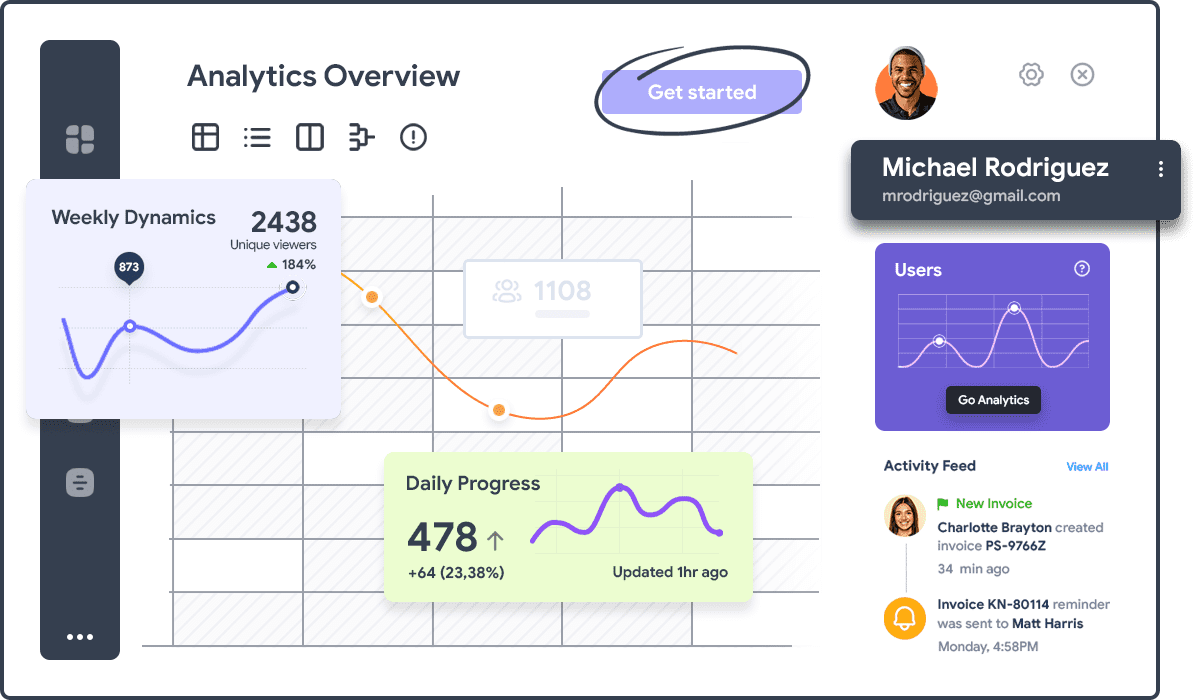FinTech IT Services
Mirasung FinTech IT Services refer to the specialized technology solutions and infrastructure that enable financial technology companies to deliver innovative financial services. These IT services are crucial for supporting the development, integration, security, and scalability of FinTech applications, platforms, and solutions. They encompass a wide range of tools and practices, including cloud computing, cybersecurity, data analytics, blockchain, AI/ML, and more. Here are the key features and details of FinTech IT services:

Scalability & Flexibility
Cloud-based services allow FinTech companies to scale resources up or down based on demand, ensuring cost-efficiency and flexibility.
High Availability
Cloud providers offer robust uptime and redundancy options to ensure continuous availability of financial services and applications.
Disaster Recovery
Cloud platforms typically offer data backup and recovery options to minimize downtime and data loss in case of system failures./p>
Global Reach
Cloud solutions allow FinTech services to be accessible worldwide, providing low-latency and high-performance user experiences.
Third-Party Integration
APIs allow FinTech services to integrate with other financial institutions, providing more seamless user experiences and broadening service offerings (e.g., enabling account linking, payment initiation, and data sharing).
Open Banking
Facilitates the sharing of financial data (with customer consent) between financial institutions and third-party providers, promoting innovation in financial products and services.
Payment Gateways
API-based payment gateways allow for the secure processing of transactions, supporting multiple payment methods like credit cards, bank transfers, and digital wallets.
Customization & Personalization
APIs allow financial institutions to offer personalized services and features based on user data and behavior.
Predictive Analytics
AI and machine learning models can analyze historical financial data to predict market trends, customer behaviors, and risks, helping businesses make better financial decisions.
Fraud Prevention
Machine learning algorithms continuously monitor and analyze transaction data to identify potentially fraudulent activities in real time.
Customer Support (Chatbots)
AI-driven chatbots provide automated customer service, answering queries and assisting with financial tasks such as payments or account management.
Risk Management
AI and ML models can evaluate the risk associated with loans, investments, and insurance products, helping financial institutions make more accurate decisions.
Real-Time Data Processing
Real-time data analytics allow FinTech platforms to make instantaneous decisions regarding transactions, investments, and customer interactions.
Customer Insights
Advanced analytics can help FinTech companies gain insights into customer behavior, preferences, and financial health to offer personalized services.
Financial Forecasting & Reporting
Data analytics tools help predict future financial trends, optimize investment strategies, and ensure regulatory compliance through comprehensive reporting.
Compensation Management
Tracks salaries, bonuses, commissions, and other forms of compensation, including adjustments and pay raises.
Big Data Integration
Analyzing vast amounts of structured and unstructured data to uncover trends, patterns, and insights that can drive business decisions and operational efficiency.
Automated Compliance Monitoring
RegTech tools automate compliance checks, ensuring that financial institutions adhere to regulations such as KYC (Know Your Customer) and AML (Anti-Money Laundering) in real time.
Risk Assessment & Reporting
RegTech platforms can evaluate and report on financial risks, ensuring companies are adhering to risk management frameworks.
AML & KYC Automation
RegTech solutions automate identity verification, transaction monitoring, and suspicious activity reporting to comply with financial regulations.
Audit & Document Management
Automation of audit trails and document management to ensure transparency, accuracy, and regulatory compliance.
Payment Processing Systems
IT services for secure, fast, and scalable processing of payments across multiple channels, including credit cards, bank transfers, and mobile wallets.
Tokenization of Payment Data
Payment data is tokenized, ensuring that sensitive information (e.g., credit card numbers) is not stored or transmitted in its raw form, reducing fraud risks.
Multi-Currency & Multi-Region Support
FinTech platforms can process payments in different currencies and cater to a global customer base, ensuring scalability and flexibility.
Real-Time Payments & Settlements
Support for instant payment systems that allow for immediate settlement and transfer of funds.
Innovation & Speed
FinTech IT services enable rapid development and deployment of financial products, helping businesses stay competitive.
Security & Compliance
Strong cybersecurity measures and compliance with financial regulations are vital to maintaining trust and avoiding legal issues.
Scalability & Flexibility
Cloud and API-based solutions allow FinTech services to grow and adapt to new business needs and customer demands.
Data-Driven Decision Making
Advanced analytics and AI/ML tools provide actionable insights, enabling businesses to make informed decisions.
Cost-Efficiency
By automating processes and optimizing infrastructure, FinTech IT services reduce operational costs while improving service quality.
Mirasung Tredbo FinTech IT services are fundamental to the operation and growth of the FinTech ecosystem. These services enable FinTech companies to provide secure, scalable, and efficient financial products that enhance customer experiences and drive innovation in the industry.
Automate your workflow with our integrations
Streamline your tasks and boost productivity by automating workflows with our powerful
